Publications
Articles, publications, books, tools and multimedia features from the U.S. Institute of Peace provide the latest news, analysis, research findings, practitioner guides and reports, all related to the conflict zones and issues that are at the center of the Institute’s work to prevent and reduce violent conflict.
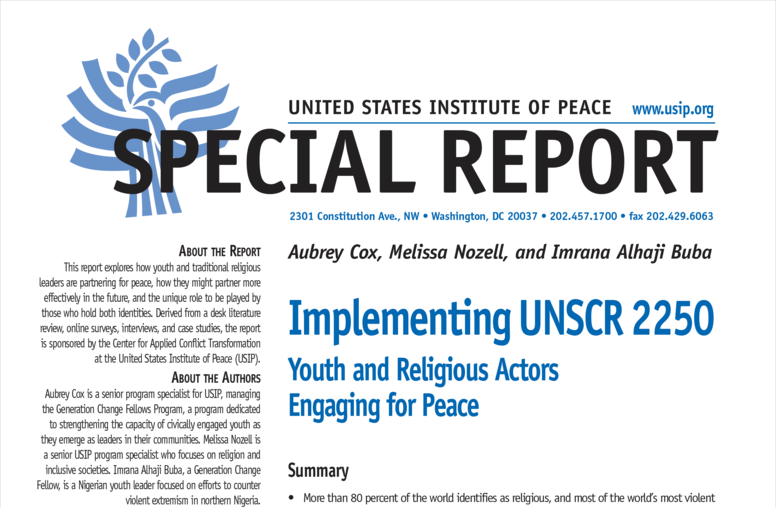
Implementing UNSCR 2250
In the context of UN Security Council Resolution 2250 on Youth, Peace, and Security, this report examines collaborations between youth and religious leaders in conflict-affected states. Using case studies, surveys, and interviews, it highlights the gaps, challenges, and opportunities for how religious actors and youth can and do partner effectively in the face of violent conflict.
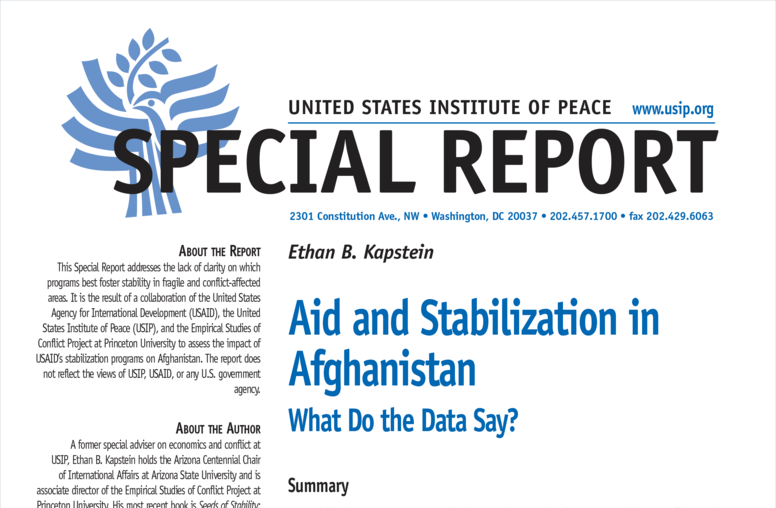
Aid and Stabilization in Afghanistan
The question for international assistance efforts in fragile and conflict-affected countries is the extent to which aid programs are associated with changes in key metrics, including security, popular support for the government, community cohesion and resilience, population health, economic well-being, and internal violence. With an eye to lessons learned for the future, this report examines USAID stabilization programming in Afghanistan, focusing on whether it reduced violence, increased support for the government, and promoted other desirable political and economic outcomes.
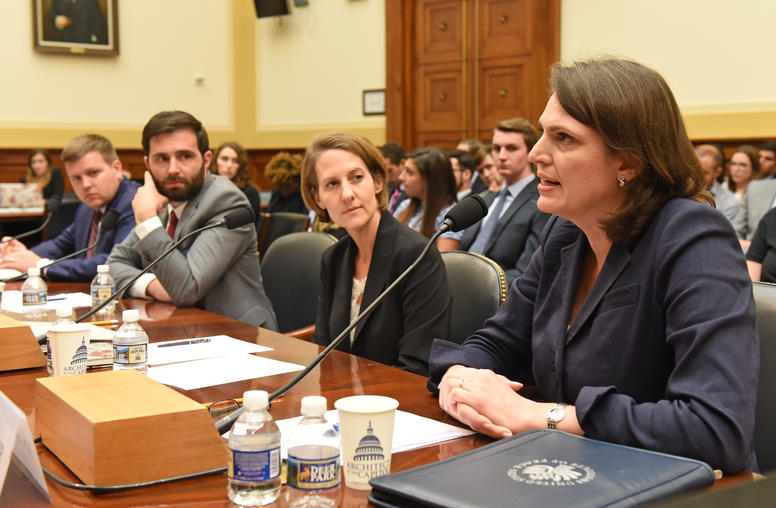
Allies Under Attack: The Terrorist Threat to Europe
USIP Director of Countering Violent Extremism Georgia Holmer testimony before the House Foreign Affairs Subcommittee on Terrorism, Nonproliferation and Trade & Subcommittee on Europe, Eurasia, and Emerging Threats.
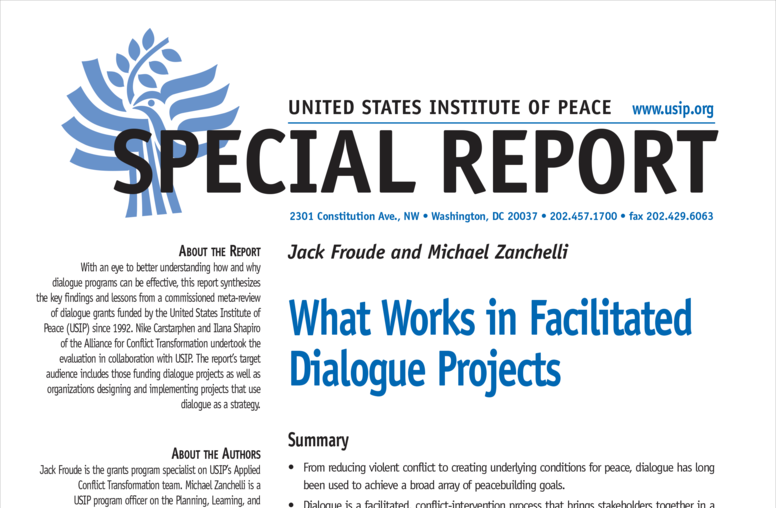
What Works in Facilitated Dialogue Projects
From reducing violent conflict to creating underlying conditions for peace, facilitated dialogue has long been used in pursuit of peacebuilding goals. In June 2015, the United States Institute of Peace commissioned a meta-review of its grant-funded dialogue projects since 1992. In an effort to better understand how and why dialogue programs can be effective in different contexts, to enhance future programmatic efforts, and to contribute to the evidence base for the benefit of the broader peacebuilding community, this report synthesizes the key findings from that evaluation.
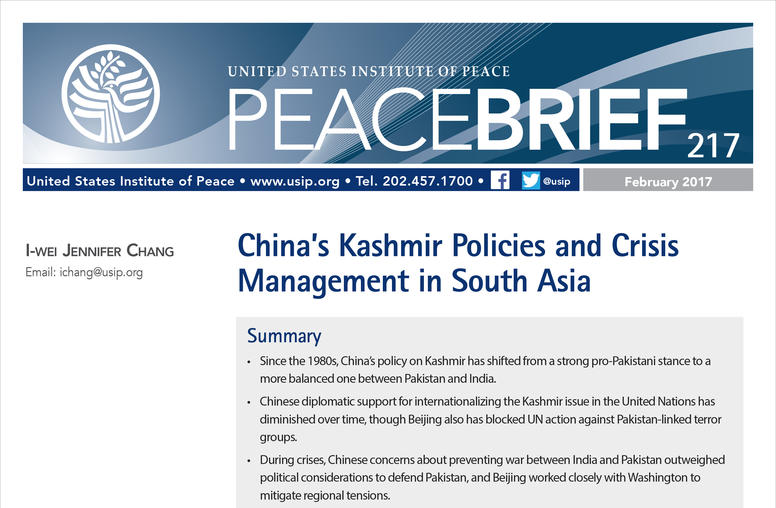
China’s Kashmir Policies and Crisis Management in South Asia
China’s policy on the Kashmir conflict between India and Pakistan has a significant impact on regional stabilization and crisis management efforts in South Asia. Beijing also plays an important third-party role in helping deescalate hostilities between the two countries. This brief discusses the evolution of China’s Kashmir policies over the past several decades and examines Chinese cooperation with the United States during periods of crises between the South Asian rivals.
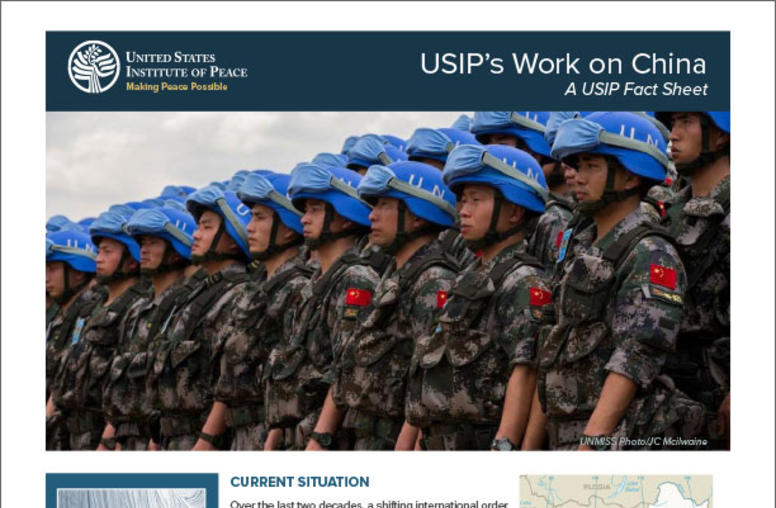
The Current Situation in China
Through bipartisan convenings, policy dialogues, coordination with allies and partners, and independent research and analysis, USIP recommends options to peacefully manage strategic competition between the United States and China.
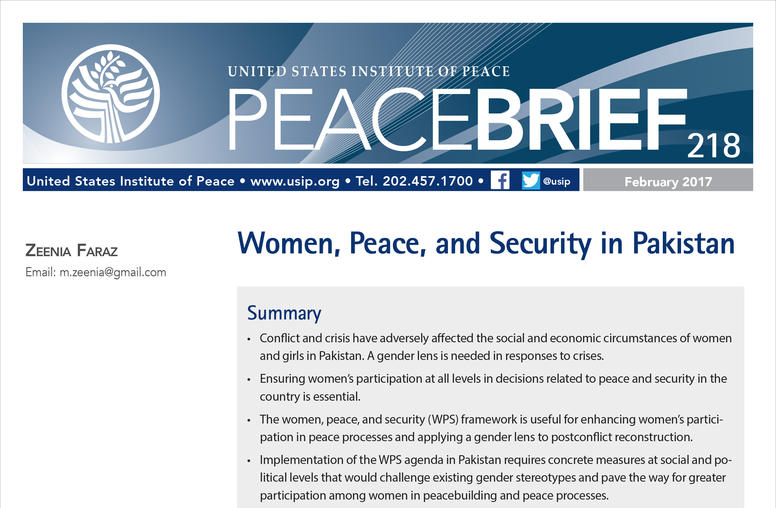
Women, Peace, and Security in Pakistan
A society defined by patriarchal norms and structural inequalities keeps women and girls on the margins of the society and hinders women’s participation in public and political spheres. Yet women’s participation in decisions related to peace and security in the country is essential to peacebuilding and postconflict reconstruction. This brief examines the challenges in implementing the women, peace, and security framework in Pakistan.
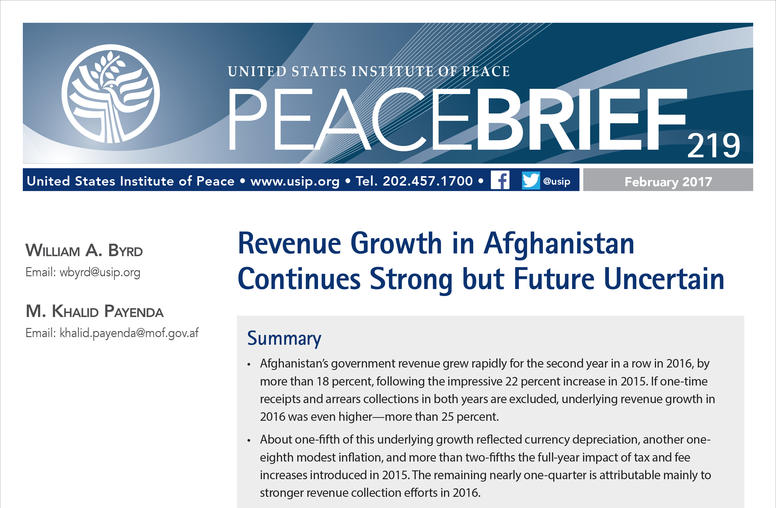
Revenue Growth in Afghanistan Continues Strong but Future Uncertain
This Peace Brief analyzes the main ingredients behind this success. In the end, however, the authors believe that sustained robust revenue growth will hinge on a durable revival of the Afghan economy, which in turn depends on achieving major progress toward peace.
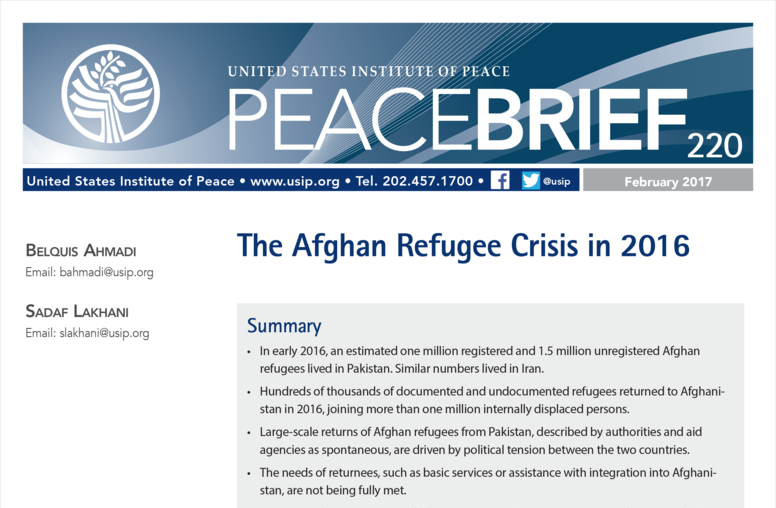
The Afghan Refugee Crisis in 2016
Hundreds of thousands of documented and undocumented refugees returned to Afghanistan in 2016, joining more than one million internally displaced within the country. International agencies warn of a humanitarian crisis that would affect hundreds of thousands of people as returnees struggle to meet basic needs. This Peace Brief provides an overview of the situation at the end of 2016, focusing on those returning from Pakistan, the humanitarian situation, and the security implications of the influx.
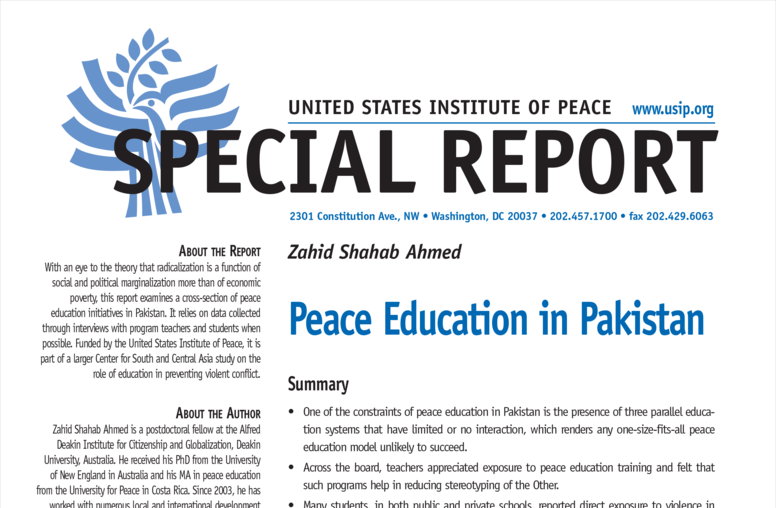
Peace Education in Pakistan
Virtually every country in South Asia faces militancy and conflict to some extent. Pakistan has been especially prone. Peace education addresses the root causes of conflict and is thus a sustainable long-term solution in conflict resolution and prevention efforts. This report examines nine representative peace education initiatives in Pakistan to better understand what types of interventions were most effective, the differences and similarities between peace education programs and curricula in schools and madrassas, and what the peacebuilding field can draw from the selected case studies.